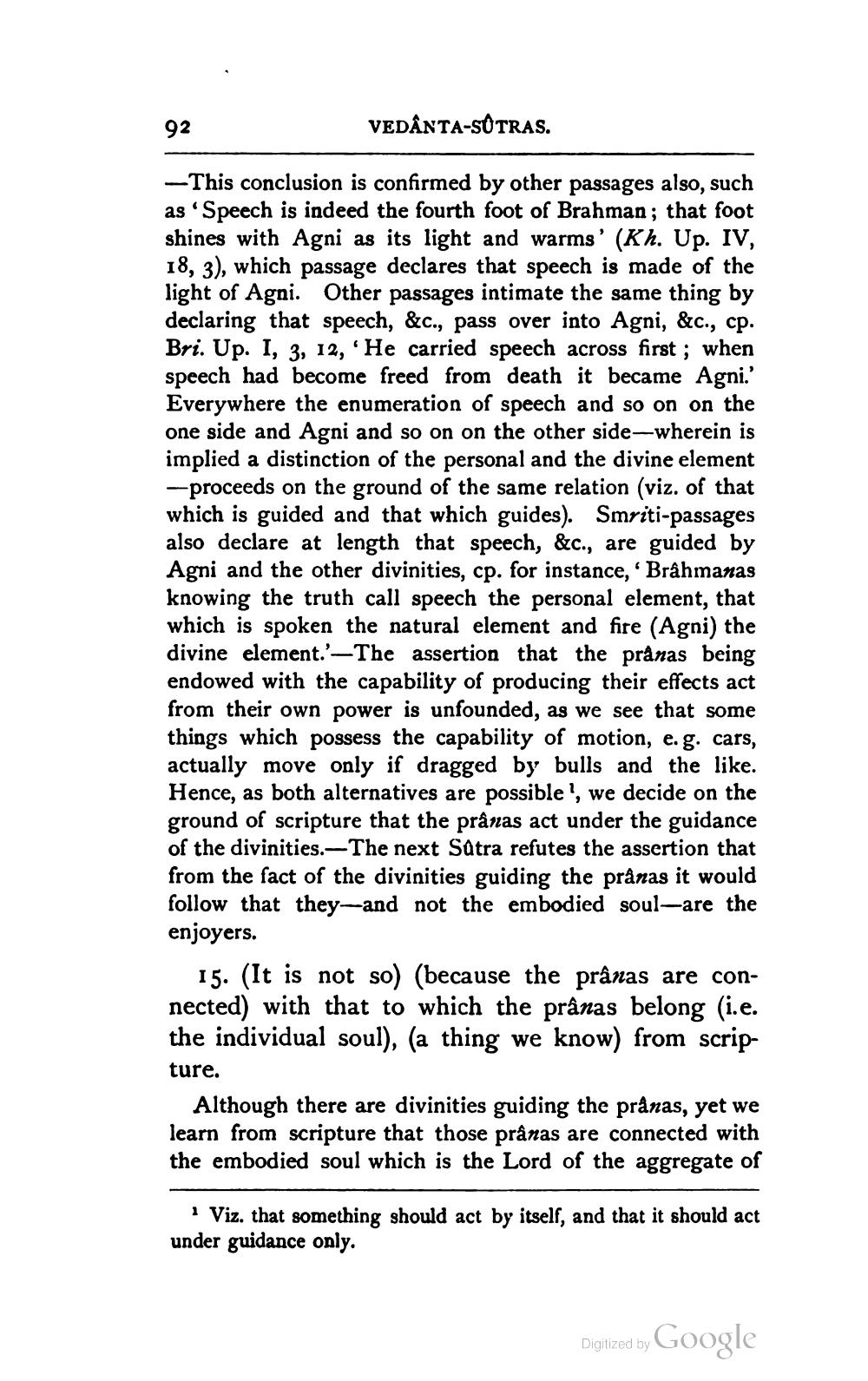________________
92
VEDÂNTA-SOTRAS.
-This conclusion is confirmed by other passages also, such as 'Speech is indeed the fourth foot of Brahman; that foot shines with Agni as its light and warms' (Kh. Up. IV, 18, 3), which passage declares that speech is made of the light of Agni. Other passages intimate the same thing by declaring that speech, &c., pass over into Agni, &c., cp. Bri. Up. I, 3, 12, 'He carried speech across first; when speech had become freed from death it became Agni.' Everywhere the enumeration of speech and so on on the one side and Agni and so on on the other side-wherein is implied a distinction of the personal and the divine element --proceeds on the ground of the same relation (viz. of that which is guided and that which guides). Smriti-passages also declare at length that speech, &c., are guided by Agni and the other divinities, cp. for instance, ' Brâhmanas knowing the truth call speech the personal element, that which is spoken the natural element and fire (Agni) the divine element.'—The assertion that the pranas being endowed with the capability of producing their effects act from their own power is unfounded, as we see that some things which possess the capability of motion, e.g. cars, actually move only if dragged by bulls and the like. Hence, as both alternatives are possible', we decide on the ground of scripture that the prânas act under the guidance of the divinities. The next Satra refutes the assertion that from the fact of the divinities guiding the prânas it would follow that they-and not the embodied soul-are the enjoyers.
15. (It is not so) (because the prânas are connected) with that to which the prânas belong (i.e. the individual soul), (a thing we know) from scripture.
Although there are divinities guiding the prânas, yet we learn from scripture that those prânas are connected with the embodied soul which is the Lord of the aggregate of
Viz. that something should act by itself, and that it should act under guidance only.
Digitized by
Digitized by Google




